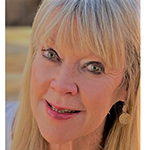Summer Sun and Senior Skin
The largest organ in our body—the skin—accounts for about 16% of total body weight and covers about 22 square feet. Yet, our skin is among the most abused areas of our body, especially when the sun beats down in summer.
We turned to the American Academy of Dermatology, the Skin Cancer Foundation and two respected dermatologists for their best information on how skin changes with age, myths, sunscreen use and how to keep skin not only healthy as you age but attractive.
The Sun and Senior Skin
Skin & birthdays: Skin does become thinner and drier as we age. Does that make us more prone to sunburn? “There’s no data that says you sunburn worse as you get older due to age alone,” says Daniel Butler, MD, assistant professor of dermatology, director of the Aging Skin and Geriatric Dermatology Clinic at the University of California San Francisco and a researcher on older adults’ skin health.
older adults often take a variety of medications, and many can increase sun sensitivity
However, older adults often take a variety of medications, and many can increase sun sensitivity, Butler says. Cleveland Clinic elaborates on how antibiotics, NSAIDs, pain relievers, diuretics for blood pressure and medicines for irregular heartbeat can all make sunlight exposure uncomfortable.
The Sun and Skin Cancer
Skin cancer: By age 70, the Skin Cancer Foundation says, 1 in 5 people will develop skin cancer. But even melanoma, much more deadly than squamous cell or basal cell skin cancers, has a 99% five-year survival rate if detected early. Dermatologists can do a professional skin check to spot problem areas. How often? Intervals should be based on your risk for skin cancer, with lighter skinned people at higher risk (but darker skinned still at risk, as well), Butler says. Family history and personal history contribute to the decision, too, Butler says. Ask your doctor if you need a skin check annually, more often or less often.
What about Sunscreen?
Sunscreens are a must. “People need sunblock, with an SPF of 30 or more, otherwise it doesn’t even count,” says Jeanine Downie, MD, a dermatologist in Montclair, NJ, and a spokesperson for the Skin Cancer Foundation. She has no preference between physical sunblocks or chemical sunblocks. The AAD explains the differences, with chemical ones acting like sponges to absorb the rays and physical sunscreens acting as a shield to block the rays. To help you pick, sunscreen ratings are produced annually by organizations such as Consumer Reports and the Environmental Working Group.
No matter which one you use, Downie tells patients to check the label to be sure it provides full UVA and UVB protection. And reapply, reapply, reapply. She advises people to apply it first thing in the morning, after brushing teeth and showering—yes, even if they work at home or have no plans to go out, since the artificial light from computers, TVs and other screens is damaging, too. Aim for an ounce (about a shot glass full) each time you apply.
Realities: “Over age 50, everyone’s skin gets thinner,” Downie says. Skin bruising is more common, too, she says. Some find topical Vitamin K may help the bruising go away, she says. Research evidence is mixed, with some research finding no effect but other research finding it did help reduce the severity of bruising after laser treatment. Sunblock, Downie says, will definitely help delay aging of the skin. Not smoking helps, too, she says.

Kathleen Doheny is a Los Angeles-based independent journalist, specializing in health, behavior, fitness and lifestyle stories. Besides writing for Senior Planet, she reports for WebMD, Medscape, Endocrine Web, Practical Pain Management, Spine Universe and other sites. She is a mom, mother-in-law and proud and happy Mimi who likes to hike, jog and shop.
Doheny photo: Shaun Newton
Want to know more about staying healthy? Join us for live virtual fitness classes, lectures and discussion groups on health topics. Learn more here!
This article offered by Senior Planet and Older Adults Technology Services is for informational purposes only and is not intended to substitute for professional medical advice, diagnosis, or treatment. Always seek the advice of your physician or other qualified health provider with any questions you may have regarding any medical condition or before starting an exercise program. If you think you may have a medical emergency, call your doctor or 911 immediately.
Editor’s Note: It’s been a while since we’ve mentioned Chief Income Strategist Marc Lichtenfeld’s core investing system, the 10-11-12…
Copyright © 2024 Retiring & Happy. All rights reserved.








